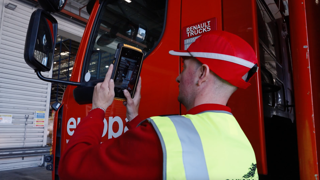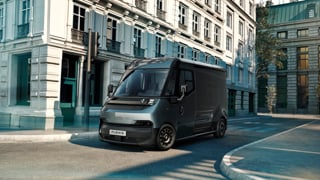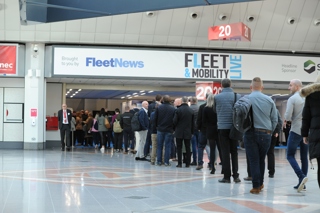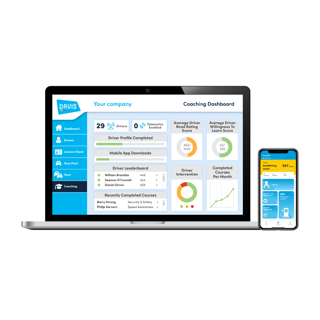AAH’s fleet consists of 800 ‘red transit’ vans, which deliver twice daily to a pharmaceutical customer base, and 130 HGVs.
It also has 400 cars, most of which are job need. Anyone travelling more than 10,000 business miles a year goes into the scheme.
“We chose 10,000 miles because that’s the limit a normal person would drive in their car per year,” says Wright.
AAH’s German parent company Celesio has a European fleet policy covering its 15 operating countries.
In addition to the centralised deals with BMW Group, Volkswagen Group’s Volkswagen, Audi and Seat, and Mercedes-Benz, AAH offers Peugeot and Ford for a “more fleet-type level” of vehicle.
Vans are all Ford, although AAH has just embarked on a two-year wholelife cost trial for Volkswagen, Mercedes-Benz and Renault, each of which is used by its sister operations in mainland Europe.
“We will use our drivers-of-the-year to trial them on the wholelife cost model, but we will also be checking that they are fit for purpose,” says Wright.
“The most important thing is that they are reliable, they have the capacity we need and they provide industry leading wholelife cost performance.
Both cars and vans are currently leased from Lex Autolease, on contracts between two and four years.
The average is 40 months with a mileage limit of 100,000 for cars and 120,000 for vans.
Scania Finance supplies the funding for the HGVs, which are kept for five years, but AAH buys its trailers because they can be written down over a longer life, typically 10 years.
AAH is constantly looking at new developments and trialling the latest initiatives (see panel) as it plans for the future.
It’s one of the company’s distribution four pillars: team, fleet, journey, future.
“We have an eye on it all, whether that’s next-generation technologies, speed/rev limiters or winter tyres,” Wright says.
And that includes Van Excellence. “We are trying to ensure that we are doing business in the right way,” he adds.
Five initiatives making a difference to AAH
Speed limiters
The trial, which limited the vans to 70mph, started in October 2010 and has now been rolled out across the fleet. AAH is considering rev limiters after a successful mini-trial.
SAFED training
AAH has made a significant investment in SAFED training and is starting to see the benefits in reduced CO2 emissions across the fleet.
AAH says it’s about a cultural change; getting drivers to understand their behaviour and the effect it has on both the company’s mpg and overall environmental impact.
It produces a league table which is making a difference as drivers compete to improve.
Aerodynamic trailers
AAH has purchased 16 aerodynamic trailers to improve fuel efficiency and reduce the environmental impact of its trunking operations.
It is trialling two solutions to reduce the disruption areas between cab and trailer and at the end of the trailer: the tear drop (a sloping roof) and the Cheetah (a tapered rear end).
Both are showing an improvement of at least 1mpg with further tests still being conducted.
The company has also added eight double deck trailers onto the fleet, again with the twin objectives of delivering on its overall fleet fuel efficiency and environmental objectives.
Safe drive
As Wright says: “Van and truck driving is a profession; car drivers are sales reps or in marketing or IT where the car is a tool to help them do their job”.
AAH’s Safe Drive programme for car drivers looks at accident management and training, and uses online assessments to raise awareness and a desire to drive better.
Winter tyres
Fitted complete with rims (so they can be stacked; also protects sidewall from taking tyres on/off rims; and halves replacement time) from November and removed once average temperature exceeded 7deg C (dependent on location).
Expected to last for two winters.
“Drivers were adamant that the tyres got them to deliveries they would have otherwise have failed,” Wright says.
“We received lots of very positive feedback from our customers for our service during the severe weather. This investment definitely made a difference.”






















Login to comment
Comments
No comments have been made yet.